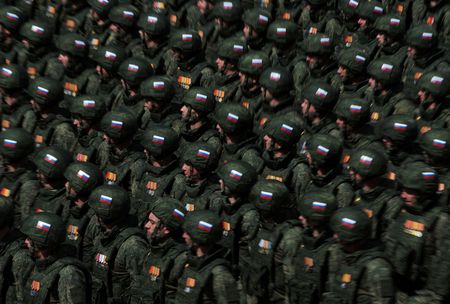By Jonathan Landay and Jonathan Saul
WASHINGTON/LONDON (Reuters) – Iran is preparing to deliver in the near future launchers for short-range ballistic missiles that the U.S. said Tehran sent to Russia last year for use against Ukraine, according to two Western security officials and a regional official.
The delivery of the Fath-360 launchers – if it occurs – would help support Russia’s grinding assault on its neighbor and reaffirm the deepening security ties between Moscow and Tehran.
With a 75-mile (120-km) range, the Fath-360 would give Moscow’s forces a new weapon to fire at Ukrainian frontline troops, nearby military targets, and population centers close to the border with Russia, analysts said.
The U.S. last September said that Iran delivered the missiles to Russia on nine Russian-flagged ships – which it sanctioned – and three sources told Reuters at that time that the launchers were not included.
The Western security officials and the regional official, speaking on condition of anonymity, said the delivery of the Fath-360 launchers was imminent.
They declined to provide further details of the pending transfer, including why they thought the launchers were not delivered with the missiles.
Russia’s defense ministry and Iran’s mission to the United Nations did not immediately respond to requests for comment.
The U.S. National Security Council referred inquiries to the State Department, which did not respond immediately. The CIA declined comment.
Russia and Iran have previously denied that Tehran had shipped the missiles or any other arms to aid the full-scale invasion of Ukraine that Moscow launched in February 2022. U.S., Ukrainian and European officials say Iran has provided Russia thousands of drones and artillery shells.
In an apparent reference to the Fath-360s, U.S. Army General Christopher Cavoli, the commander of U.S. Central Command, last month told U.S. lawmakers that Iran had donated to Russia more than 400 short-range ballistic missiles.
There have been no public reports of Iran transferring any other kinds of short-range ballistic missiles to Moscow or of Russian forces using the Fath-360.
POSSIBLE COMPLICATION FOR PEACE TALKS
Russia’s deployment of the missiles could complicate U.S. President Donald Trump’s efforts to arrange a ceasefire and peace talks between Ukraine and Russia and to strike a separate deal with Iran to curb its nuclear program.
The regional official said that the indirect U.S.-Iran nuclear talks mediated by Oman are among “several reasons” for the delayed delivery of the launchers.
The talks have encountered turbulence, although Iran on Friday said it agreed to hold a fourth round in Oman on Sunday.
Jack Watling, a senior research fellow at the Royal United Services Institute think tank, said that Iranian officials would consider the issue of sending arms to Russia as separate from the nuclear talks.
“That the Iranians are negotiating on nuclear issues with the U.S. will not be seen as connected to what they might do in collaboration with the Russians,” he said.
Analysts said there could have been another complication: Iran had to modify European-made commercial trucks on which to mount the launchers for its own Fath-360 arsenal, and it may have had to do the same for Russia given its massive losses of vehicles in Ukraine.
With the launchers, Russia will be able to increase pressure on Ukraine, said the experts.
“It would be much easier (for Russian forces) to launch a strike much faster … against high-value targets,” said Fabian Hinz, a research fellow with the International Institute for Strategic Studies. “They (Fath-360s) don’t need a lot of launch preparations. Their flight time is incredibly short.”
Deploying the Fath-360 could allow Russia to reserve its more advanced missiles, like the Iskander, for longer-range strikes at critical infrastructure, including the power grid, straining Ukraine’s precious missile defenses, the analysts said.
The Fath-360 “is designed to be handled and operated by people with relatively little training,” said Ralph Savelsberg, an associate professor at the Netherlands Defense Academy.
“Why would they (Russia) buy inferior Iranian missiles? The only reason I could think of is that they cannot produce a sufficient number of their own missiles,” he said.
“They’re not super accurate and they don’t carry a very large payload. But it just adds to Ukraine’s headaches.”
(Reporting by Jonathan Landay and Jonathan Saul. Additional reporting by Tom Balmforth in London and Guy Faulconbridge in Moscow. Editing by Don Durfee and Alistair Bell)











